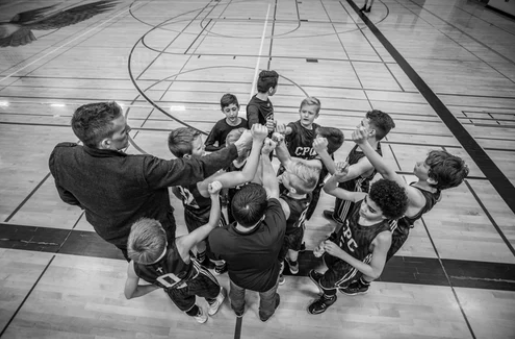I left teaching 25 years ago to take a position selling fitness equipment to gyms and commercial settings. 100% commission at the time, 30 years old, mortgage, hoping to start a family. 2nd career. Never did sales.
Since that time, I have sold in a small territory in 2 languages, sold in a big one in 1 language.
Managed a small team while selling and managed a big team.
Worked on very small transactions, been a part of some very large ones.
I have met many very interesting people, travelled to many interesting places.
I have been disappointed and lost many times, however, my wins overshadow those losses.
I have lost money but overall made a good living.
The bottom line is that I have had the privilege of supplying lots and lots of exercise equipment to organizations that focus on creating healthy communities.

I don’t think there has been 1 day when I have not learned a lesson, and maybe that is why I have survived 25 years. 25 years x approx. 300 working days a year = 7500 lessons!! (on the low end!! )
For you, I have narrowed it down to my top 25 .
These are the 25 lessons from 25 years in sales.
- Have a passion, or at least an interest in the product you are representing. There is a reason most sales business cards say “sales representative”. We are being paid to represent the company for whom we work. Being passionate about exercise, it was a good fit to represent companies that created tools to help exercisers.
- Believe in your organization and the people who run it. Without that belief, it is very difficult to speak confidently about the equipment you represent.
- As a former team sport athlete growing up, I was always more comfortable in a team. That worked out because to be efficient and productive in sales, you need a supporting team. In our industry, that team included administration, logistics, technical support and finance. Without that support, you risk becoming a jack of many trades, and master of none.

- Understand the business you are in. How does your organization compete, be profitable, win and lose. While working with a team, and specializing in 1 aspect of the sale (the front end), understanding the business side became a massive asset. My first organization were stickler for inventory control. In big pieces of exercise equipment, 1 mistake around inventory costs a lot. Getting on an installation and being a part of the last touch point to a customer was also a valuable perspective.
- Understand the customer. The customer is not always right, but putting yourself in the customer position is a good start to making a connection and getting towards a sale. What are their concerns, fears, challenges and worries? Without understanding this, you are playing roulette instead of establishing a starting point to enter the conversation. The entire point of sales is to knowledgeably offer a product that solves a problem for the customer.

- Have a USP. Early on I learned that having pieces of the puzzle others could not compete with was critical. Being unique. Unique selling proposition. USP. What makes what is being offered unique? Different? Worth a 2nd look by your customer. A unique selling proposition is taught by every business school from here to the north pole. Being able to transfer that to traction for your offer and your customer is a direct link to your sales success.
- Be of “service” mindset. Sales is another term to be of service. To get someone to write a cheque for something you offer and be excited to do so, comes from creating something of value for someone else.
- Study and master lead generation. This has changed a ton over 25 years. Social media, email marketing did not exist when I started. However, the phone did and so did the standard mail. These are still so valuable. What’s working and how is a big part finding those interested in what you offer, or perhaps more relevantly in an information age, have them find you! If consistency is the goal, then lead generation is the skill that sets you on your away to achieving the goal.
- Understand your industry: growth trends, top players, best practices. You can learn a lot from what the best are doing. How can you learn from top performers. When I say industry, I refer to sales, not just your product category. I have been in business to business sales for most of my career, so this is the industry I study.
- Understanding how your competitors sell and market is a good idea. (Your customer options) Most important lesson here, to do something different. For sure, important to know best practices, and integrate into some of your offering.
- Professional development. Never stop learning. 25 years ago it was reading. Still is. Today, podcasts, webinars and seminars. Focusing on getting better everyday. As John wooden said “it is what your learn after you know it all that counts”.
- Use the products you sell. This is linked to a passion for what you represent. Also, Use the products you compete against. This is especially relevant for me over the years, in fitness equipment. But this applies to many products. If you don’t use your products, you are not the advocate you claim to be for your customer.
- Get good at listening. Really listening. The more I listened and observed, the more consistent I got. Simple. Not easy.
- Practice communication skills. A good doctor can communicate medical speak into terms the average person understands. They do so with compassion and with humility. Same with a financial advisor taking complex financial information and converting it into terms we can understand. A good salesperson does the same. The communication of message needs to be customized to the person being addressed. This is a skill that can only be developed through practice. Just like an actor with a script.
- Don’t let numbers scare you and don’t be a slave to them. Numbers in business and sales are how we keep score. It is how we get paid. They scare many. However, they are a guide on performance and validation of your skills. They don’t lie. I always loved the picture numbers can provide. In my business, B2B sales, numbers paint the picture for the customer as well. Best embrace them and use them to your benefit.
- The work expands to the time you have : if you are good, you will be in demand : don’t let that take you away from what’s important to you. I have not always been good at this. Many years, I worked long hours to learn a craft that was foreign to me. Very few people are good at a skill early on. As I started I got some advice, don’t let the company and their interests take you away from what’s important in your life. You only have 1 chance to raise your kids and be home for important events.
I don’t mind admitting that I struggled with this for some time, because the ego stroke that comes from being in demand is gratifying. In hindsight, it is not all that important. The work is there. Especially if you are good. If you are good, you can develop your own terms of work.
- Master Sales Skills. Have a process. A musician knows what skills to practice to get better. Many salespeople don’t. The theory of sales and the practice of sales often get lost in translation. There are skills that you need to be good at to be better at sales. They include many of what is shared here. Knowledge of your customer, and market. Listening and asking relevant questions. Focus and follow up. Communication in various forms, from writing to presenting. Most importantly problem solving. The most important skills come from practice. But sales success starts with knowing the skills that work.

- Positioning. This is a big one. Thanks Dan Kennedy! This is connected to lead generation. If you can position yourself as being valuable to your customer, sales consistency will follow.
- Collect money. Early on in my sales career, I was at a conference and someone I struck up a conversation with started bragging about all the quotes he had out in the field. Being new to sales, I had to question whether this was important in performance. It is. But not as important as getting orders and collecting money. Collecting money is the most important skill. Get good at it.
- Understand & leverage finance. This is connected to knowing and understand numbers. In B2B sales, finance plays a big role. The largest sales I have been involved in were over $1M in equipment. The role of exchange rates, depreciation, interest rates, cash flow and other aspects of finance are critical in putting together a winning proposal.
- Don’t try to please everyone. It was definitely a process to understand that I was not going to please everyone. Problems happen. Deliverables sometimes don’t meet expectations. All opportunities are not created equal. Being able to say no, or deal with disappointment or negative reviews is part of the job. Especially if you experience some success, many negative naysayers will target you and try to knock you down. Don’t let it deter you from what is important.

- Learn from your mistakes. Oh, the mistakes. I think it was Michael Jordan who said, that he succeeded with game winning shots because he failed so many times. Not many sales trainings will talk of the journey of mistakes and losses. But they are valuable. Learn from them. I did.
- Create goals you can be excited about. The self-help industry will talk of goal setting. Which is fine and good. However, having goals that you can get excited about is most often connected to your why.
- Focus. The more success one has, the more distractions come your way. Stay focused on what’s important to you while striking a balance with what’s going on around you. At times during my career I think I suffered from tunnel vision, and that hurt just as much as getting distracted.
- Stand for something. How do you want to be known by coworkers and customers?
Last, but not least, have fun. This won’t happen all the time. But if you represent products and organizations you like, work with people you enjoy, it won’t always seem like a job. This is very high on the list. The equipment industry gave me outlet to determine my income while being part of an industry that I love. I worked hard, filled up my library and applied what could. I had some great wins, but also some devastating losses.
The more I worked in sales, the more l realized that the people were the most important thing.
It is not about product or quotas or margins or goals.
It is about helping people.

That was and is fun!
